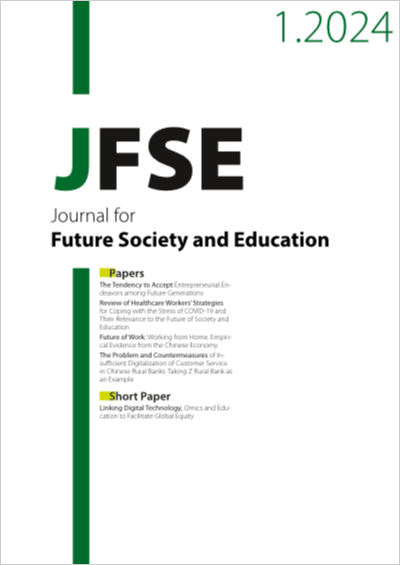The Tendency to Accept Entrepreneurial Endeavors among Future Generations
DOI:
https://doi.org/10.3991/jfse.v1i1.50377Keywords:
future generations, entrepreneurship education, sustainabilityAbstract
The study aims to investigate whether students, after finishing their university education and receiving an entrepreneurship education, have a significant tendency to pursue entrepreneurship as a lifelong pursuit rather than choosing traditional career paths in the public or private sectors. In addition, the study aims to clarify the significance of encouraging economic growth among college students at a National university in Sri Lanka. The research employed a quantitative approach with a descriptive study design to provide a detailed analysis of entrepreneurship education for future research. This study employed a structured questionnaire as an instrument for polling to assess students’ views on the efficacy of entrepreneurship education. The study sample consisted of 76 students who had successfully finished the entrepreneurship course during their first year from the Applied Sciences Faculty and were studying different combinations of science streams together with management modules. Six hypotheses are formulated to address the specific objectives of the research. The study’s findings revealed that most students do not believe that the education system in Sri Lanka effectively delivers the needed entrepreneurial education, which is crucial for the country’s economic development. Students strongly believe that the government fails to emphasize the right requirements for improving the entrepreneurial education system in Sri Lanka. Moreover, students acknowledge that they do not intend to pursue future entrepreneurial endeavors. Most students do not believe that the university curriculum adequately and necessarily prepares them with the necessary vocational training to enhance their preparedness and desire for entrepreneurship. Additionally, the research findings indicate that undergraduates who are pursuing a scientific major at Sri Lankan National University have a restricted sense of locus of control. The exploration of these results takes into account the existing knowledge and the unresolved aspects of the current national education systems to identify the hidden innovation in the prospects for the future of the younger generation in the country as they relate to national economic growth.
Downloads
Published
How to Cite
Issue
Section
License
Copyright (c) 2024 Otilia Manta, K.A.K. GNANAWEERA

This work is licensed under a Creative Commons Attribution 4.0 International License.


